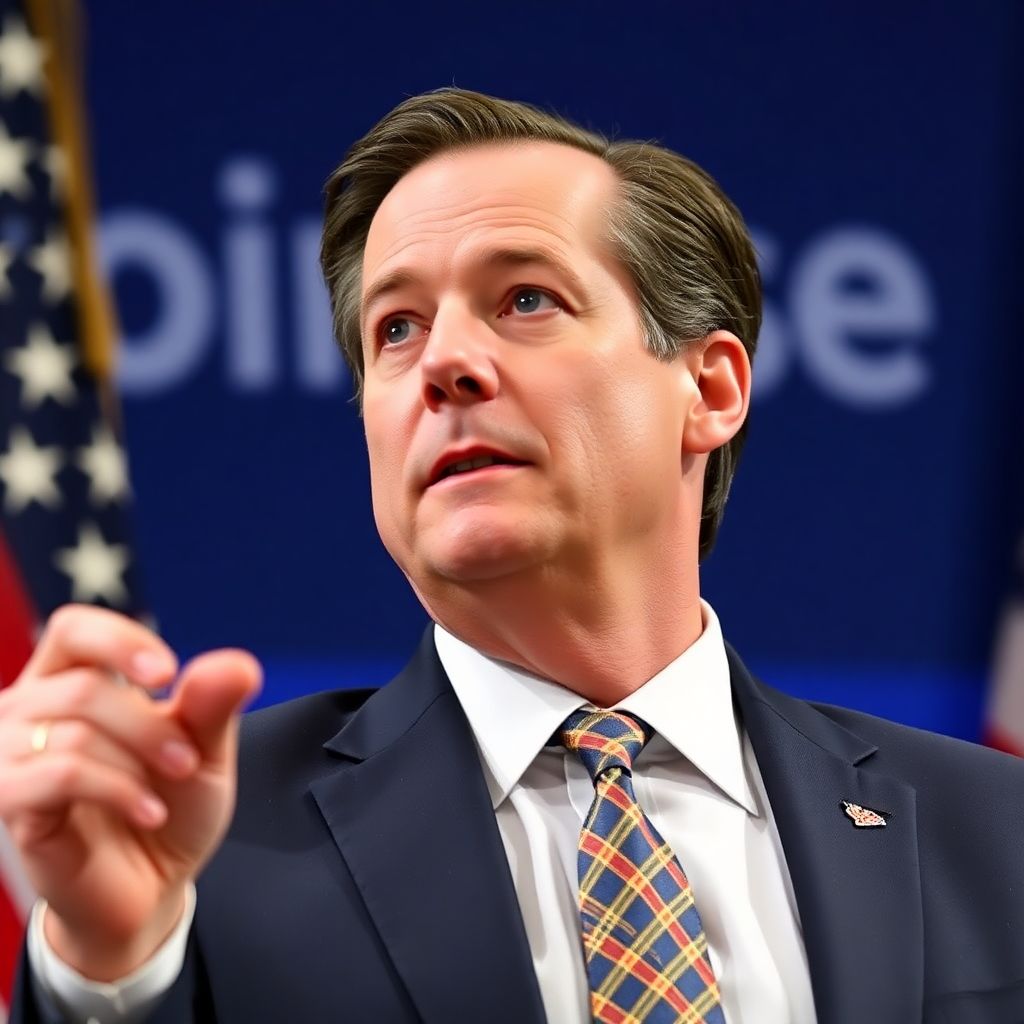A heated political dispute has erupted between U.S. Senator Chris Murphy and Coinbase, one of the leading cryptocurrency exchanges in the world. At the heart of the controversy are allegations surrounding campaign contributions and supposed influence over federal regulatory decisions. Senator Murphy accused Coinbase of being a “corruption factory,” claiming the company funneled $46 million to support former President Donald Trump and received favorable treatment from regulatory bodies in return. Coinbase’s Chief Legal Officer, Paul Grewal, has strongly denied the accusations, labeling them as “false” and “misinformed.”
Murphy’s central claim is that Coinbase’s political donations were strategically aimed at securing regulatory leniency. He alleges that the $46 million was not only used to support Trump-aligned candidates but also included a substantial contribution toward Trump’s inauguration. He suggested a sequence of events where financial support was followed by Trump’s intervention in an SEC case against Coinbase, and finally, a request for an additional donation for an inauguration venue.
In response, Grewal fired back on social media, asserting that Coinbase has never sought to “buy” regulatory favors. Instead, he argued that the company has consistently lobbied for transparent and consistent rules in the crypto sector. Grewal emphasized that the company’s legal troubles stemmed not from its political activity but from the SEC’s inconsistent and, in some cases, legally flawed approach to regulation. He pointed to a federal court ruling that described the SEC’s denial of Coinbase’s petition for clearer rulemaking as “arbitrary and capricious.”
Coinbase has also pointed to its ongoing business developments as evidence of its commitment to legitimate growth and compliance. The exchange has recently announced a collaboration with Citigroup aimed at simplifying stablecoin transactions for institutional clients. Additionally, it has partnered with staking platform Figment to enhance services across several blockchain networks, including Solana, Cardano, and Sui. These moves, according to Grewal, show the company’s focus on innovation and regulatory compliance, not political maneuvering.
John Deaton, an attorney well known in the crypto community for defending XRP investors, came to Coinbase’s defense. He criticized the SEC’s inconsistent stance, noting that allowing Coinbase to go public—only to later challenge its business model—reflected regulatory hypocrisy. Deaton accused former SEC Chair Gary Gensler of pushing a politically motivated agenda against cryptocurrency companies. He also highlighted Senator Elizabeth Warren’s aggressive anti-crypto position as part of a broader pattern of political hostility toward the industry.
Deaton further argued that targeting Coinbase for alleged violations, while ignoring its previously approved IPO, suggests selective enforcement motivated by political bias rather than legal principle. This, he said, undermines trust in the regulatory process and harms both innovation and investor confidence.
The broader crypto community remains divided. Many see the senator’s accusations as politically motivated, lacking concrete evidence of direct quid pro quo arrangements. Others, however, call for greater transparency regarding political donations from crypto firms and how these might influence policy decisions.
Campaign finance records and event sponsorship disclosures have been cited by both sides, but no publicly available documents have conclusively proven that Coinbase’s financial support led to specific regulatory outcomes. This ambiguity leaves room for speculation, fueling the political firestorm at a time when Washington is actively debating the future of cryptocurrency regulation.
As Congress considers new legislation to govern digital assets, the Coinbase controversy highlights the tension between fostering innovation and enforcing accountability. Some lawmakers advocate for stricter oversight to prevent potential abuse, while others argue that the lack of clear regulatory frameworks is stifling the growth of an emerging industry.
Beyond the immediate controversy, this exchange underscores a larger issue: the intersection of money, politics, and emerging technologies. Cryptocurrency firms, like traditional financial institutions, are increasingly active in political advocacy. However, the decentralized and disruptive nature of blockchain technology makes regulatory engagement more contentious and politically charged.
Moving forward, the crypto industry faces a critical juncture. With mounting scrutiny from lawmakers, agencies like the SEC and CFTC are under pressure to clarify their jurisdiction and streamline enforcement practices. At the same time, exchanges such as Coinbase must navigate a complex landscape of compliance, public relations, and innovation.
The incident also raises questions about the role of public perception in shaping regulatory outcomes. Accusations, even if unproven, can influence legislative agendas and sway public opinion—particularly in an election cycle. For crypto companies, maintaining transparency and proactively engaging with regulators may become essential strategies for long-term sustainability.
In the broader context, the Coinbase controversy may serve as a catalyst for reform. It could prompt Congress to define clearer boundaries for political contributions from crypto firms, as well as establish transparent procedures for regulatory decision-making. Whether or not the allegations against Coinbase hold, the debate they’ve sparked is likely to impact how the U.S. approaches digital assets in the years to come.
While the accusations have yet to yield any formal investigation or legal action, the reputational damage and regulatory uncertainty may linger. For now, Coinbase continues to assert its innocence and emphasizes its role in advocating for a robust yet fair crypto regulatory environment. Whether that message resonates with policymakers and the public remains to be seen.

